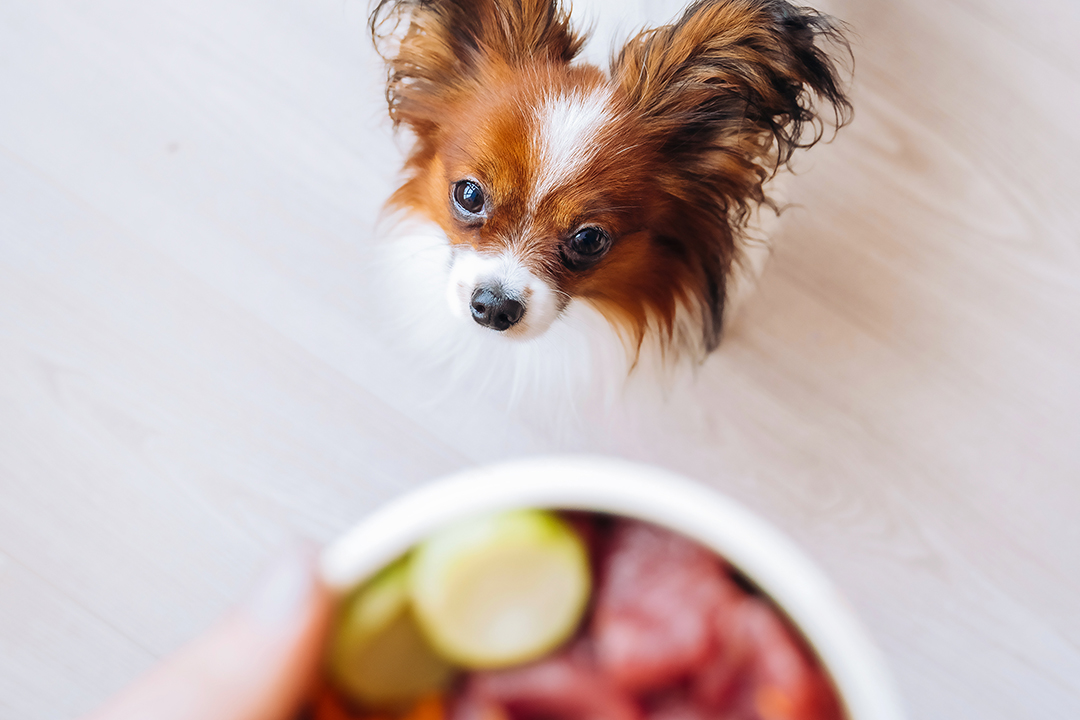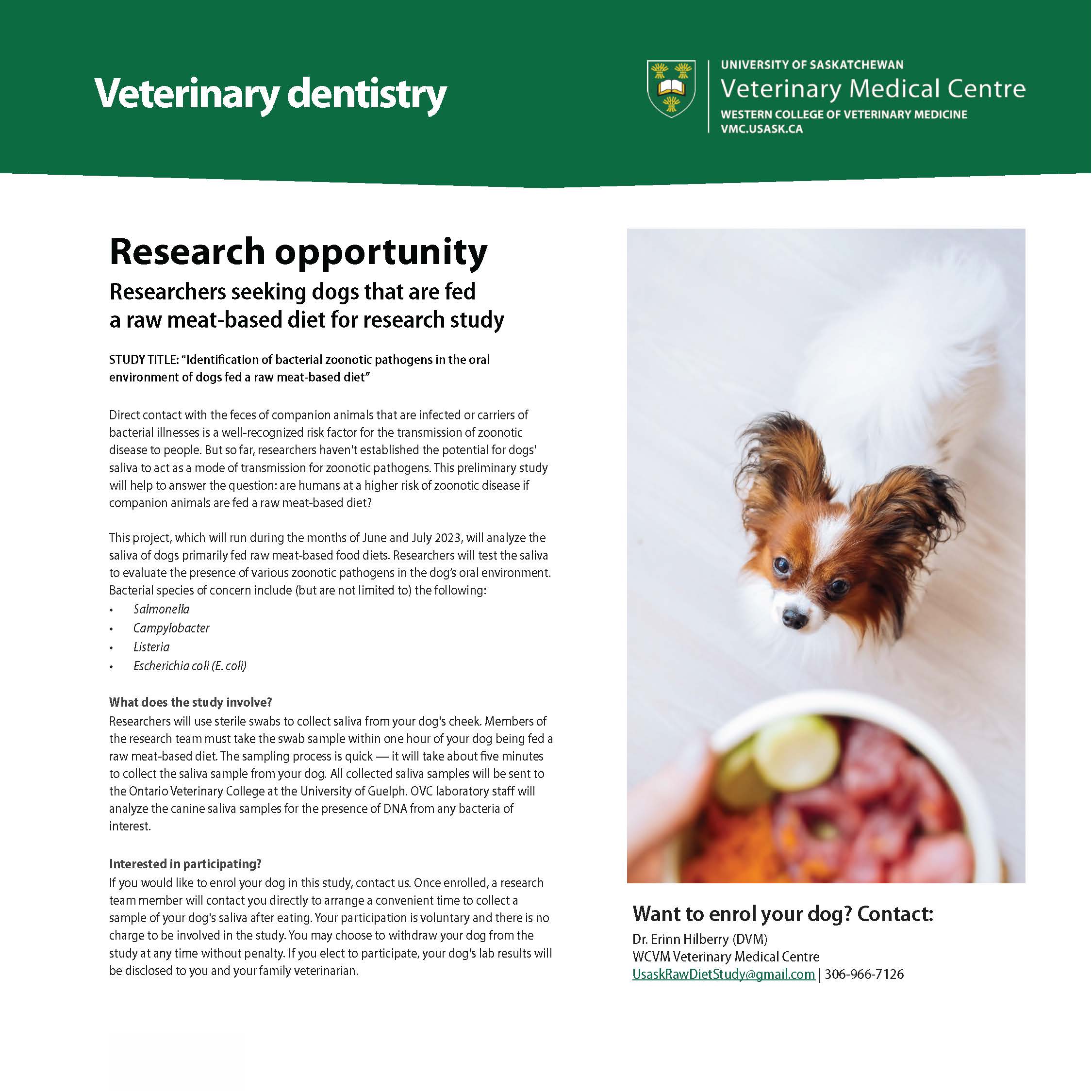
USask scientists seek dogs on raw-food diet for study
University of Saskatchewan (USask) researchers from the Western College of Veterinary Medicine and the College of Dentistry are recruiting dogs on raw meat-based diets for an ongoing study.
STUDY TITLE: “Identification of bacterial zoonotic pathogens in the oral environment of dogs fed a raw meat-based diet"
Direct contact with the feces of companion animals that are infected or carriers of bacterial illnesses is a well-recognized risk factor for the transmission of zoonotic disease to people. But so far, researchers haven't established the potential for dogs' saliva to act as a mode of transmission for zoonotic pathogens.
This preliminary study will help to answer the question: are people at a higher risk of zoonotic disease if companion animals are fed a raw meat-based diet?
This project, which will run during the months of June and July 2023, will analyze the saliva of dogs primarily fed raw meat-based food diets. Researchers will test the saliva to evaluate the presence of various zoonotic pathogens in the dog’s oral environment.
Bacterial species of concern include (but are not limited to) the following:
- Salmonella
- Campylobacter
- Listeria
- Escherichia coli (E. coli)
What does the study involve?
Researchers will use sterile swabs to collect saliva from your dog's cheek. Members of the reseach team must take the swab sample within one hour of your dog being fed a raw meat-based diet.
The sampling process is quick: it will take about five minutes to collect the saliva sample from your dog.
All collected saliva samples will be sent to the Ontario Veterinary College at the University of Guelph. OVC laboratory staff will analyze the canine saliva samples for the presence of DNA from any bacteria of interest.
Interested in participating?
If you would like to enrol your dog in this study, please send a message to the email address below. A research team member will contact you directly to arrange a convenient time to collect a sample of your dog's saliva after eating.
Your participation is voluntary and there is no charge to be involved in the study. You may choose to withdraw your dog from the study at any time without penalty.
If you elect to participate, your dog's lab results will be disclosed to you and your family veterinarian.
Contact information
If you have questions about the study or its guidelines, contact:
Dr. Erinn Hilberry (DVM), WCVM Veterinary Medical Centre
UsaskRawDietStudy@gmail.com | 306-966-7126


